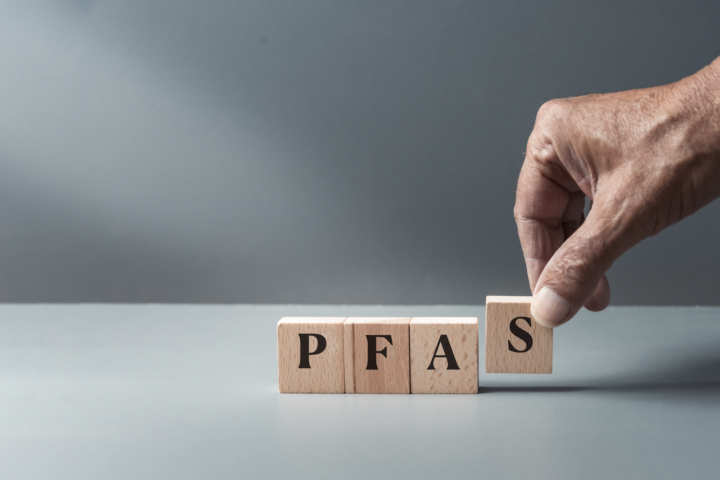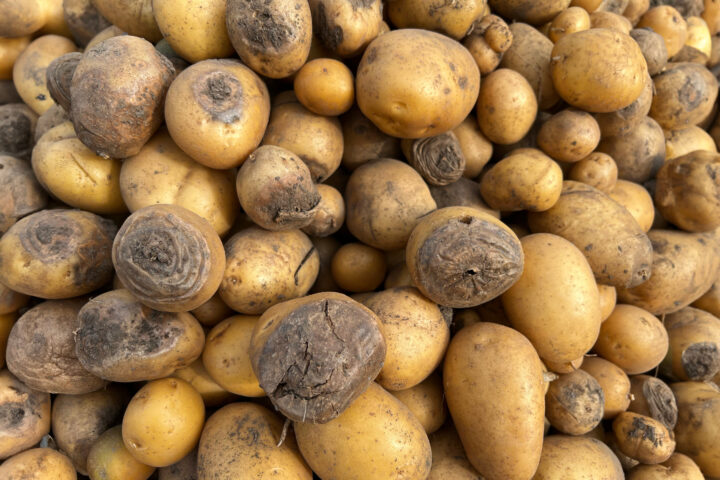
Authorisation of new crop protection products: federal government hesitates, parliament exerts pressure
In Switzerland, the authorisation of new crop protection products is stalling. And there is a disturbing asymmetry. The federal government immediately withdraws authorisations for crop protection products that the EU takes off the market. At the same time, the authorities still insist on an independent Swiss authorisation process for the approval of new active substances. The consequences are a huge bureaucracy and a massive authorisation backlog. This makes regional production more difficult and leads to crop failures. The dossier has now seen some movement. As part of a consultation process, the federal government is proposing to harmonise authorisation with the EU. However, the proposals are unsatisfactory. Parliament is insisting on a more convincing solution.
Tuesday, February 6, 2024
Swiss agriculture is increasingly lacking crop protection products to protect its crops. The consequences are serious. There are not enough resources to combat pests and plant diseases. This leads to "food waste" in the fields, which experts refer to as "food loss". There is also the threat of resistance if farmers no longer have access to a sufficiently wide range of products. As the Tages-Anzeiger reports, the last plum season was a bad one. The plum moth nested in the plums. At the same time, the number of crop protection products is decreasing. "Last year, they had 316 active substances at their disposal, compared to 435 in 2005, a good third more. On the other hand, the number of emergency authorisations with which the federal government wants to help farmers out of a jam has risen: from 5 in 2016 to 27 last year - a record." In the article, the Swiss Farmers' Association warns that the range of active ingredients is shrinking. This would have "dramatic consequences" for plant protection.
At the end of 2022, around 700 crop protection products were awaiting authorisation. swiss-food.ch reported on this based on an article in "La Liberté". The slow authorisation process and the mountain of pending applications prevent efficient plant protection with modern products. In the wet and cold summer of 2021, Schaffhausen winegrowers were at a disadvantage compared to their German colleagues across the border. They lacked modern fungicides. Now the federal government wants to tackle the problem. The consultation procedure for the revision of the Plant Protection Products Ordinance (PPPO) is currently underway, with which the Federal Council wants to bring the Swiss authorisation procedure closer to that of the EU. However, the draft does not stand up to closer scrutiny. The Council of States' Committee for Economic Affairs and Taxation (WAK-S), for example, criticises the lack of consistency. The committee is of the opinion that "...more pressure and further steps are needed to improve the difficult situation in the plant protection sector." The committee has therefore referred a parliamentary initiative (22.441) and a motion (21.4164). Both initiatives demand that the Swiss authorities adopt the authorisation decisions of member states when approving active substances from the EU or the crop protection products formulated from them, so that crop protection products authorised there are also available on the Swiss market without delay. This is only logical, as Switzerland also automatically follows the EU when it comes to withdrawing active substances. The adoption of pa.Iv. (22.441) "Enabling modern plant protection in Switzerland" means that the WAK-N must now draw up a corresponding bill within two years. It puts Parliament in charge. And there will be a fresh start at legislative level.
The Federal Council's proposal for a totally revised Plant Protection Products Ordinance (PPPO), which is currently undergoing consultation, unfortunately remains unsatisfactory. With a horrendous increase in fees, it also cancels out the tentative progress made. Jürg Burkhard from the company Sintagro, which imports crop protection products from abroad into Switzerland and applies for authorisation here, expressed this view in the BauernZeitung. "Authorisation for a new crop protection product with a new active ingredient will be 40 times more expensive and will now cost CHF 100,000 instead of the previous CHF 2,500. If the active ingredient is already authorised in the EU, it will cost 30 times more in future." This means that authorisation in Switzerland is no longer worthwhile. According to the article, the Swiss Farmers' Association shares the importer's fears. "The variety of active ingredients and products would decrease even more," says David Brugger, who is responsible for the sector, to the BauernZeitung. And for Jürg Burkhard, the harmonisation of regulations with the EU and the simultaneous explosion in fees is incomprehensible: "I also don't understand why, despite simplification, the costs for administration are not falling". He points out to the BauernZeitung that, after all, there would be no need to retest products authorised in the EU in future.
From the industry's point of view, only a harmonised and efficient authorisation procedure can guarantee modern and innovative protection concepts for Swiss farmers. The current dishonest practice of emergency authorisations by the federal government, cantons and producer organisations needs to be abandoned. Action is urgently needed to ensure the protection of crops on a robust legal basis.
The Federal Council is dithering with the present proposal. To summarise, the following points of criticism take centre stage:
- No automatic adoption of the authorisation of crop protection products.
The consultation draft adopts the EU authorisation decisions for plant protection active substances called for by the initiatives. Under certain conditions, a simplified authorisation of crop protection products is also made possible if an identical crop protection product is already authorised in an EU member state with comparable agronomic, climatic and environmental conditions to those in Switzerland. However, the Swiss authorities can impose stricter requirements than the EU legislation, but are not obliged to adopt the EU's decisions and respond to the needs of agriculture. - No binding time limits analogous to the EU member states.
The consultation draft provides for new time limits for the authorisation of crop protection products, similar to those in the EU. However, the processing deadlines in the authorisation process that apply in the EU will not be adopted. Manufacturers need a minimum of planning certainty in order to be able to supply the Swiss market at all. - The proposal does not relieve the authorities, but leads to additional costs without any countervalue.
A complete automatic adoption of EU authorisation decisions for active substances and products in accordance with Pa. Iv. 22.441 and Motion 21.4164 would reduce the administrative burden on the authorities. In view of the tight federal finances, this would be an effective way of saving financial and human resources without jeopardising the level of safety. - Massive increase in authorisation fees jeopardises domestic production.
Together with the revised PPP Ordinance, the fees for the authorisation of crop protection products are to be increased. The polluter-pays principle cited by the authorities as a justification is being unilaterally passed on to the applicants. However, without viable business cases, companies will submit fewer applications for authorisation for new modern products and for reauthorisation after expiry of the authorisation, as it is simply no longer worthwhile for the small Swiss market. This will lead to a loss of income in agriculture and jeopardise domestic production. All those hoping for parallel imports will also be disappointed: Only products that are authorised in Switzerland can be imported.
The Federal Food Safety and Veterinary Office (FSVO) is responsible for the authorisation of crop protection products in Switzerland. This regulation has been in force since 2022, but a total of four federal offices are involved in the authorisation of crop protection products. However, the reorganisation has not resulted in the mountain of pending cases being cleared. The massive increase in authorisation fees proposed in the Crop Protection Ordinance makes a mockery of the polluter pays principle. The fees are intended to compensate for the higher personnel costs that were largely caused by the environmental protection organisations applying for party status. This has also been confirmed by the Federal Council in response to questions from Parliament.
Crop protection must be effective
In Switzerland, crop protection products are authorised in complex procedures aimed at protecting users and consumers, the environment and crops. The core of every plant protection product authorisation is the testing of the efficacy and plant compatibility of a substance. In order to be able to assess these properties, extensive studies must be submitted by official or officially recognised research institutions. These are evaluated by experts from various federal offices in accordance with international standards. Authorisation is only granted if all requirements are met. The facts about the authorisation process.
Kindly note:
We, a non-native editorial team value clear and faultless communication. At times we have to prioritize speed over perfection, utilizing tools, that are still learning.
We are deepL sorry for any observed stylistic or spelling errors.
Related articles

Assess scientifically instead of banning indiscriminately
The debate surrounding PFAS is gaining momentum in Switzerland. At its core are questions about potential risks to human health and the environment, as well as future regulatory approaches. A differentiated, science-based approach is essential – as emphasised by scienceindustries in a short interview with Dominique Werner, Head of Chemicals Regulation.

Faster Approval of Crop Protection Products Long Overdue
Switzerland diligently bans active substances that have also been withdrawn from the market in the EU. Conversely, it is dragging its feet: modern products that are approved in neighboring countries remain blocked. With the adoption of the amendment to the Agriculture Act, the National Council has now taken an important step toward faster approval of plant protection products.

Differing perceptions
While the increasing administrative burden is perceived as the main concern in the economy, parts of the population see it differently. Meanwhile, regulations are repeatedly misused as a means of exerting power in the competitive struggle – to the detriment of SMEs.

Domestic production as a blind spot
Switzerland's food security is increasingly under pressure: last year's disastrous wheat and potato harvests have led to an increasing dependence on imports. However, the report by the Federal Office for National Economic Supply (FONES) is largely silent on the precarious state of the domestic agricultural sector. The IG BauernUnternehmen (Farmers' Company) has therefore sharply criticised the federal government.

